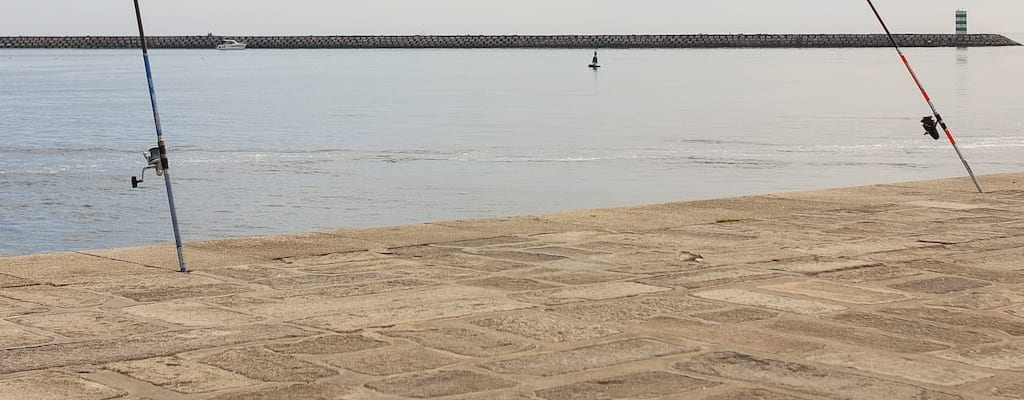gone fishing: Idiom Meaning and Origin
What does ‘gone fishing’ mean?
The idiom "gone fishing" is used to indicate that someone is taking a break or not available, often to imply that they are avoiding or neglecting responsibilities.

Idiom Explorer
An idiom that refers to taking a break or having a period of rest from work or other responsibilities.
The idiom "let someone go" means to allow someone to leave or end a relationship, usually in a work context, such as firing an employee or ending a romantic relationship.
The idiom "lay off" means to stop doing or using something, to stop bothering someone, or to stop employing someone, usually due to a lack of work or financial issues.
One of the most commonly used idioms in the English language is "lay off." This phrase has various meanings and can be used in different contexts, but its underlying principle is always related to stopping or ceasing an action.
The idiom "have other fish to fry" means to have other more important or interesting things to do or be concerned with.
The idiom "go nowhere" means to make no progress or to have no effect. It can be used to describe a situation, a plan, or a person's actions that are unproductive or leading to no meaningful outcome.
Idiom: go nowhere
Facts:
- The idiom "go nowhere" is a colloquial expression used in the English language.
The idiom "gone north" is typically used to describe a situation or a person that has disappeared or vanished, often without a trace. It implies that the person or thing has gone in an unknown or unexpected direction, similar to heading north and disappearing from sight.
The idiom "go jump in the lake" is used to dismiss or reject someone or their suggestion in a rude or sarcastic way.
An idiom used to describe someone leaving or departing. It implies a physical or metaphorical departure from a place or situation.
Going away is an idiom in the English language used to describe a person's departure or leaving from a particular place. It can refer to leaving one's home, workplace, or any other location. This idiom is often used in casual conversations and can be found in various contexts.
The idiom "go hang" is used to express dismissal, rejection, or indifference towards someone or something. It implies that the person or thing being referred to is not worth the speaker's attention or consideration.
The idiom "go fly a kite" is an informal way of telling someone to go away or to leave you alone, often used when you are annoyed or frustrated with them.
The Elusive Absence
Gone fishing is an idiomatic expression used in American English to describe someone taking a break from work or responsibilities. It signifies a temporary escape from daily routines and obligations, often with the intention of engaging in a leisurely activity. The phrase is closely associated with the idea of indulging in recreational pastimes, such as fishing.
When someone says they are "gone fishing," they are essentially saying that they have temporarily abandoned their usual duties or responsibilities and are enjoying a moment of leisure. In a literal sense, it means leaving one's usual place, such as work or home, to go fishing. Fishing, being a popular recreational activity in the United States, is known for its relaxing and peaceful qualities, making it the perfect activity for taking a break.
The exact origin of the idiom "gone fishing" is unclear, but it is believed to have become more widely used in the mid-20th century. This coincides with the growing popularity of fishing as a recreational activity during that time. As people increasingly sought moments of relaxation and escape from their daily lives, the idiom gained recognition and usage.
Not only is "gone fishing" used literally, but it also has a figurative usage. People can use it to indicate that they are mentally or emotionally absent, not fully engaged or attentive. In a lighthearted or humorous manner, the idiom can convey a sense of carefree attitude and relaxation. It can be employed to express the desire for a break or simply to lighten the mood in conversations.
It is important to note that the true meaning of "gone fishing" can vary depending on the situation and the relationship between the speakers. Context and tone play a significant role in determining the intention behind the idiom's usage. Shared cultural knowledge and understanding also contribute to its interpretation, as with many idiomatic expressions.
The idiom "gone fishing" finds a common place in American English, representing a temporary break or escape from work and responsibilities. Its association with recreational activities, particularly fishing, underscores the value of leisure and the importance of taking time off. Whether used literally or figuratively, the idiom reminds us of the significance of relaxation and the benefits of temporarily disengaging from the demands of everyday life.
When we hear the idiomatic phrase "gone fishing," it signals that someone is taking a break from their responsibilities. This expression captures the desire to step away from the demands of work, providing an opportunity for relaxation and rejuvenation. It is similar to the idiom "go fish," which denotes embarking on a quest or search for something. In this case, one could say that the person who is "gone fishing" is seeking a moment of leisure and escape from the stresses of daily life.
Fishing, as a recreational activity, has long been associated with a sense of tranquility and calmness. It offers a way to unwind and reconnect with nature. By taking the time to engage in this leisurely pursuit, individuals can recharge their energy and clear their minds. This idea aligns with the idiom "time off," which suggests the need for a break or vacation. Both idioms emphasize the importance of self-care and the benefits of prioritizing one's well-being.
The idiom "gone fishing" also invites us to reflect on the value of leisure time. In a fast-paced society where productivity and busyness are often prioritized, finding moments for relaxation can be challenging but essential. By embracing the concept of "gone fishing," individuals acknowledge the need to balance work and leisure, recognizing that both are integral to a well-rounded, fulfilling life.
When someone utters the phrase "gone fishing," it signifies a departure from the usual routine, comparable to temporarily stepping out of the game. This connection reflects the idiom "go fish," which originates from the card game of the same name. In the context of the idiom "gone fishing," taking time off is akin to deciding not to participate actively in the game of life, and instead, opting for a gentle pause.
The idiom "gone fishing" implies that individuals are intentionally creating space for leisure and relaxation. By metaphorically casting their lines into the water, they engage in a pursuit that brings joy and peace. Much like the magic of fishing lies in the uncertainty of what one might catch, the same can be said about taking time off. It allows individuals to embrace the unexpected, rejuvenate their minds, and possibly discover new perspectives that were previously elusive.
The correlation between "gone fishing" and "time off" is evident in their joint emphasis on the importance of rest and rejuvenation. Both idioms encourage individuals to prioritize their well-being and find a healthy balance between work and leisure. Taking breaks, whether to go fishing or simply unwind, is essential for maintaining mental and physical health, cultivating creativity, and sustaining long-term productivity.
The idiomatic expression "gone fishing" signifies the act of taking a break from work or responsibilities. It expresses the desire to temporarily escape the demands of daily life and indulge in leisure activities. The association with fishing adds depth to its meaning, signifying the pursuit of relaxation and enjoyment. Similar to the idioms "go fish" and "time off," "gone fishing" highlights the significance of self-care and finding a harmonious balance between work and leisure. By embracing these idioms, individuals can appreciate the value of taking breaks, recharging their energy, and ultimately leading more fulfilling lives.
Example usage
Examples of how the idiom *gone fishing* can be used in a sentence: 1. "I won't be able to attend the meeting tomorrow, I'm sorry. I'll be gone fishing with my family." 2. "After working non-stop for months, John decided to take a break and go fishing. He told his colleagues, 'I'm taking a few days off and going gone fishing.'" 3. "Instead of studying all day, Sarah decided to take a spontaneous day off and go gone fishing with her friends."
In all three examples, the idiom *gone fishing* is used to indicate someone's absence or taking a break from their usual activities. It signifies their decision to go on a fishing trip for relaxation or leisure purposes.
More "Recreation" idioms



